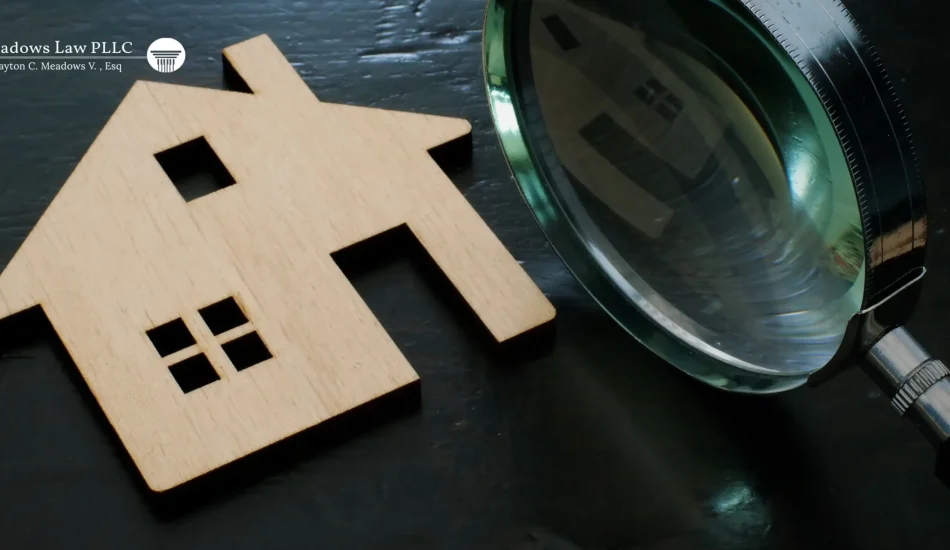|
|
Last Modified on Jul 06, 2025
If your property is damaged, whether through an accident, vandalism, or a criminal act, it is essential to understand how the damage is valued. In West Virginia, property damage claims may be made in both civil and criminal cases. The amount of property damage involved can make a difference in the charge classification, as well as how much a person is able to recover. Understanding property damage valuation in West Virginia can help protect your rights.
What Is Property Damage Valuation?
Property damage valuation is the monetary worth of damage to real or personal property. The category of damaged property encompasses vehicles, homes, electronics, and all other tangible items. The valuation of property damage can be important in both criminal law and civil claims.
In criminal law, the value of the damage can impact the severity of charges brought against an individual. In civil claims, it will affect how much money you are entitled to receive in compensation. For instance, West Virginia criminal law has specific guidelines for the value of property damage. The threshold between misdemeanor and felony charges depends on the amount of money involved.
Property damage, including theft, made up 97.8 percent of homeowners’ insurance claims in 2022. A separate study found that weather-related property damages amounted to $121.4 billion from 2017 to 2021.
Factors That Influence Property Damage Valuation
Valuing property damage in West Virginia involves more than just guessing the cost of repairs. Certain specific factors are a part of the valuation, including:
- Replacement cost and actual cash value. Replacement cost refers to the expense incurred to replace an item with one of the same kind and quality. Actual cash value considers depreciation, including the item’s value before it was damaged.
- Estimated repairs. Certified professionals provide written repair estimates that courts and insurance companies frequently use. Many will request multiple estimates to guard against inflated or inaccurate valuations.
- Diminished value. An item that has been repaired, such as a vehicle, may still be worth less than it was before the damage. This diminished value may sometimes be recovered.
- Professional testimony. Each side in a contested case can also usually call in an appraiser, contractor, or other professional for an independent valuation.
Why Property Damage Valuation Matters
Property damage valuation is crucial to criminal defense because the value of the damage often determines whether a charge is classified as a misdemeanor or a felony. In West Virginia, for example, property damage of a relatively small amount is classified as a misdemeanor, whereas property damage that exceeds the legal limit is considered a felony, carrying significantly higher penalties.
A skilled criminal defense attorney can contest exaggerated estimates, offer independent appraisals, and reduce or dismiss the charges. Valuation is important, not just for your finances, but for the future of your case and of your life.
What to Do if You’re Accused of Property Damage
In West Virginia, if you are charged with property damage, it is essential to understand your rights and how to effectively protect yourself. Do not admit guilt or talk about the incident with anyone except your lawyer. Anything you say can be used against you in a court of law. Document everything while it is fresh in your mind, such as photographs of the alleged damage, names and phone numbers of witnesses, or anything else that may be relevant.
If you know that the damage was done, you are still entitled to receive a fair valuation of the repair costs. Ask for at least two estimates, if possible, to counter inflated or inaccurate charges. Finally, consult with an experienced criminal defense attorney familiar with the local courts and property damage laws. A qualified lawyer can help dispute exaggerated charges, negotiate a favorable plea agreement, and build a strong defense that will safeguard your rights and future.
About Meadows Law PLLC
Meadows Law PLLC is a full-service Morgantown criminal defense law firm that works hard to defend your rights, your freedom, and your future. Our law practice focuses specifically on cases involving criminal behavior and property offenses. Meadows Law PLLC works with precision and strategy while maintaining a profound understanding of local judicial bodies, including the Monongalia County Circuit Court.
We understand West Virginia property damage laws and offer a straightforward, results-focused approach, providing personalized attention and aggressive representation when you need it most. Whether it’s property damage penalties from misdemeanor offenses to serious felonies, the property damage attorneys at Meadows Law PLLC are with you to help fight for your rights.
FAQs
Q: How Is Property Damage Calculated?
A: Property damage is generally calculated as the lesser of repair cost or replacement cost minus depreciation. The appropriate valuation method depends on the context. Actual cash value or replacement cost is common when professionals are involved. Other elements may be considered, such as diminished value or loss of use, in the case of an insurance or legal claim.
Q: What Is the Charge of Destruction of Property in West Virginia?
A: The offense of destruction of property in West Virginia can be charged either as a misdemeanor or a felony. The felony charge typically involves an amount that exceeds a specific threshold. Factors such as intent and whether the property was public or private may also impact the classification of the offense.
Q: Does Insurance Pay for Diminished Vehicle Value in a Wreck In West Virginia?
A: In West Virginia, yes, some insurance companies will pay for diminished value in some cases. You have what’s called a diminished value claim, which refers to the decrease in a vehicle’s value after a wreck, even after repairs have been made. Keep in mind, though, not all insurance companies automatically provide this coverage. You may have to negotiate for this type of coverage or request it.
Q: How Is Property Damage Assessed?
A: Property damage assessments start with visual examinations and photographic documentation. In some cases, professional estimates for repair or replacement may be required. Contractors, mechanics, or appraisers are sometimes involved, depending on the nature of the damaged items. In legal or insurance proceedings, more than one estimate may be sought for the purpose of ensuring accurate valuations or guarding against exaggerated claims.
Contact Meadows Law PLLC Today
At Meadows Law PLLC, we can help you if you are involved in a property damage case. Contact us today to hire a property damage lawyer.




